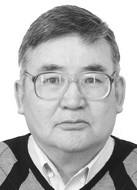E-learning system application for physical education and sports specialist training
Фотографии:
ˑ:
PhD, Associate Professor V.P. Barakhsanov1
Dr.Hab., Professor E.A. Barakhsanova1
PhD, Associate Professor N.P. Olesov2
PhD, Associate Professor M.S. Prokopyev2
1Ammosov North-Eastern Federal University, Yakutsk
2Pedagogical Institute of M.K. Ammosov North-Eastern Federal University, Yakutsk
The study analyzes the potential benefits of the e-learning system for future physical education and sport specialists. Subject to the study were the Physical Culture and Sports Institute students and masters majoring in the Pedagogical Education discipline at Ammosov North-Eastern Federal University. The study data shows the need for a digital information and educational system to be applied to improve the physical education process. The study subject is highly topical due to the need for a theoretically grounded, practically tested and applicable in the Russian physical education system curricula to make future teachers knowledgeable and skillful in the e-learning technologies (ELT) applicable in their professional service. Applied for the study purposes were the academic progress tests, experimental tools and mathematical methods of statistics. The study data and analyses showed benefits of the proposed physical education and sport specialist training model with the modern e-learning technologies to support professional careers, with the model benefits verified by the students’ progress in the modern e-learning technologies.
Keywords: e-learning, teacher training, educational environment, e-learning technology.
References
- Vlasova E.Z. Informatsionnye kriterii kachestva elektronnogo obucheniya [Information criteria for quality of e-learning]. Sovremennoe obrazovanie: traditsii i innovatsii, no 3, 2016, pp. 159-166.
- Vlasova E.Z. Elektronnoe obuchenie v sovremennom vuze: problemy, perspektivy i opyt ispolzovaniya [E-learning in modern university: problems, perspectives and application experience]. Universum: Vestnik Gertsenskogo universiteta, 2014, no. 1, pp. 43-49.
- Vlasova E.Z., Barakhsanova E.A. Elektronnoe obuchenie v pedagogicheskom vuze: problemy i perspektivy [E-learning in pedagogical university: problems and prospects]. Gumanitarnoe obrazovanie kak imperativ razvitiya grazhdanskogo obschestva. Sb. nauchno-metod. mater. mezhdunar. nauchno-obrazovatenogo foruma SVFU [Education in Humanities as an imperative of civil society development. Proc. scie.-method. intern. scientific educational forum of NEFU], 2014, pp. 191-199.
- Platonov D.N., Platonova L.L., Cherkashin I.A. Formirovanie strategii razvitiya regionalnoy sistemy nepreryvnogo fizkulturnogo obrazovaniya [Formation of strategy of development of regional system of continuous physical culture education]. Teoriya i praktika fiz. kultury, 2015, no. 10, pp. 3-4.
- Cherkashin A.V., Krivoruchenko E.V., Skryabin S.P., Okhlopkov P.P. Nauchno-metodicheskoe obespechenie podgotovki sportivnogo rezerva Respubliki Sakha (Yakutiya) [Methodological support of training of sports reserve of Republic of Sakha (Yakutia)]. Teoriya i praktika fiz. kultury, 2015, no. 10, pp. 51-53.
- Barakhsanova E.A., Savvinov V.M., Prokopyev M.S., Vlasova E.Z., Gosudarev I.B. Adaptive education technologies to train Russian teachers to use e-learning. IEJME. Mathematics education 2016, vol.11, no. 10, 3447-3456



 Журнал "THEORY AND PRACTICE
Журнал "THEORY AND PRACTICE